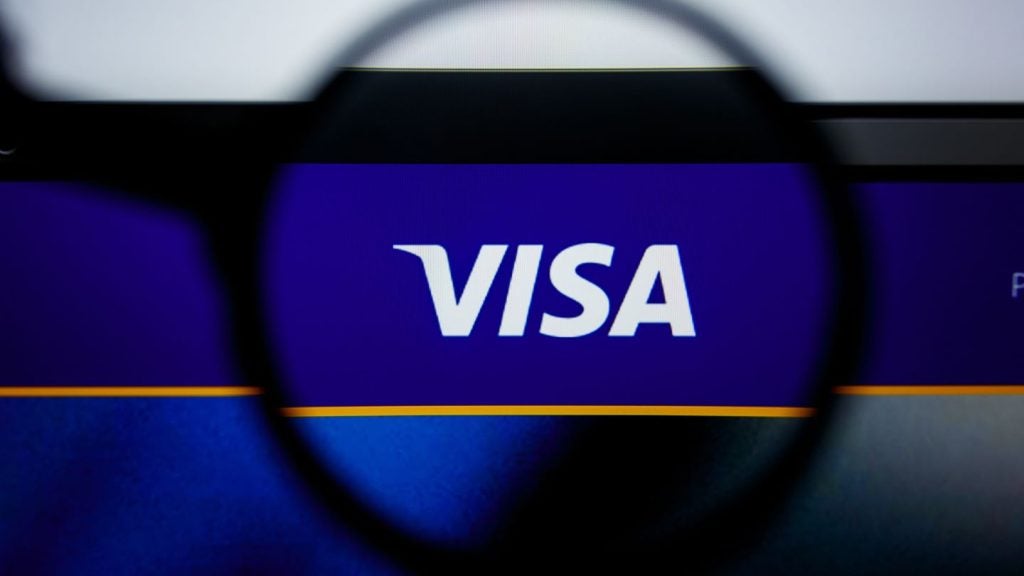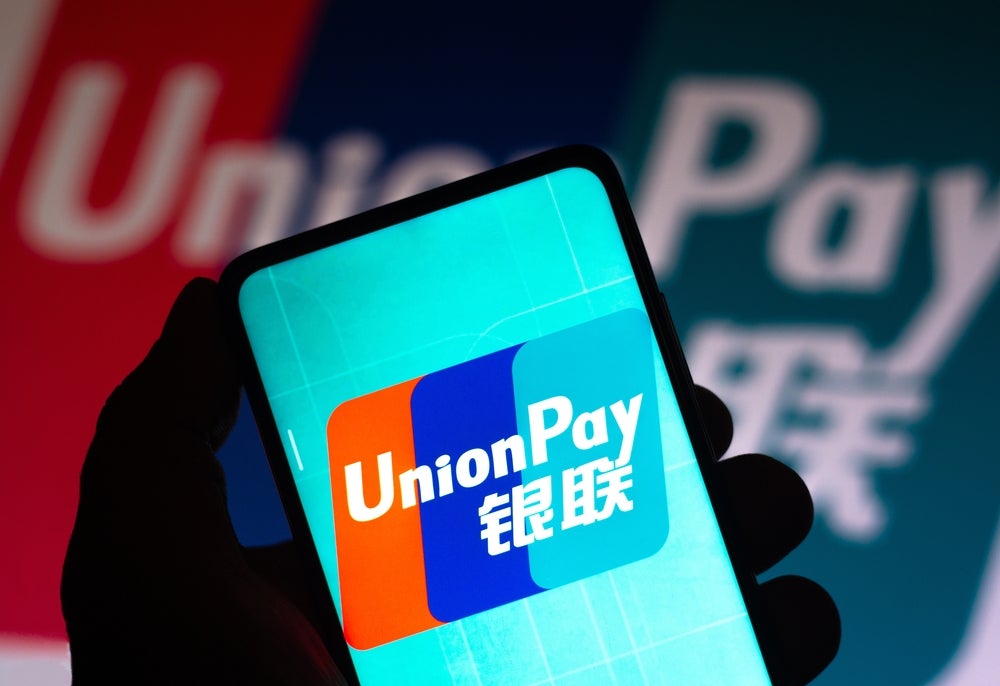The profile of UK prepaid and payment solution provider
M-Cube is on the rise following the hugely successful launch of its
ground-breaking Aspinall Foundation prepaid card earlier this year.
However, M-Cube is setting its sights beyond the prepaid sector, as
Victoria Conroy reports.
_m.jpg) M-Cube,
M-Cube,
a UK-based prepaid and payment solution provider established in
2005, has made a big impact in a short space of time. Having
already successfully launched its Maestro-branded On-X card into
the UK market, in a little under a year M-Cube has blazed a trail
and left competitors scratching their heads at how a relatively
small new player was able to launch one of the most high-profile
prepaid card products – the Aspinall Foundation card, which is free
to the consumer and gives all profits to charity – and secure a
prepaid programme deal with Ryanair, Europe’s largest low-fares
airline, giving M-Cube exposure to the 60 million passengers who
travel with Ryanair each year.
M-Cube’s CEO Mashallah Ali (MA), and Jonathan Rees (JR), sales
director, spoke to CI about their vision for M-Cube and what the
industry needs to do as a whole to promote greater consumer
understanding and market growth.
_m.jpg) CI:
CI:
Could you sum up M-Cube’s activities this year, and how you see the
UK prepaid market developing going forward?
MA: Since On-X was launched, we have been very busy working to
get other products out. At the same time we have consciously and
purposefully limited our profile in the market and have watched how
the market is developing in the prepaid arena.
We have noticed that there are certain things that are missing
in the market. What we have noticed is that if you sell a prepaid
card only as a prepaid card and without a value chain around it, it
will not be successful. You have to get your value chain and
distribution right. As far as we are concerned, that is the key to
the success of any prepaid product launched in the future in the UK
or anywhere else.
How well do you really know your competitors?
Access the most comprehensive Company Profiles on the market, powered by GlobalData. Save hours of research. Gain competitive edge.

Thank you!
Your download email will arrive shortly
Not ready to buy yet? Download a free sample
We are confident about the unique quality of our Company Profiles. However, we want you to make the most beneficial decision for your business, so we offer a free sample that you can download by submitting the below form
By GlobalDataOriginally we launched On-X and then in March this year we
launched the Aspinall card, and we successfully got that out into
the marketplace. It has been a big success and the Aspinall
Foundation have seen a lot of interest arise from it, and they are
proactively pushing it from their end.
They have also provided us with their database and have
convinced their members to take up the prepaid card as a
membership-style product so that they can benefit from the services
and facilities that Aspinall is providing.
This is all part of the value chain of the Aspinall card. They
are providing services in the park and outside the park which is
related to helping gorillas and helping Aspinall to raise funds
relating to their charity. The card is doing very well, and they
are backing it up as much as we are.
Meanwhile, in the background, we have been working on the club
side of prepaid. The concept of the club proposition has really
taken off with the Ryanair programme. It is really around building
a lifestyle product rather than relying on a piece of plastic. We
are still at an early stage with that programme but linking with a
big brand such as Ryanair means that both we and they can get a lot
of success out of it.
We have seen quite a lot of hits already on the website. As a
lifestyle card, there are services on offer for consumers to
benefit from, such as cashback and other benefits.We have been
working very hard for the last seven or eight months to get to this
point and this is our first lifestyle club proposition, as I would
call it. Every programme that we launch from here on is going to be
similar to that.
We are also revisiting On-X to turn it into a club proposition
in the very near future. The card aspect will still be featured on
the On-X website, but the club aspect of the website will be more
prominently featured so that cardholders can look at the services
and benefits included in the whole proposition, and the special
offers available as long as the cardholder uses their membership
card.
JR: It’s been a very exciting year for us. There’s been a change
in focus, and I think everybody realises that the UK market in
prepaid is not going to mirror the US as it is a completely
different commercial demographic. We have looked at things
differently. We have On-X but we do not really sell it directly to
the consumer – that’s not what our focus is on. We have taken On-X
and partnered with a number of people in various market
sectors.
Our core strength is in building a sales and marketing
proposition around the brand name and building that lifestyle
product, and that is what we have focused on.
With Aspinall, it is still a rewards package and there is a
reason for consumers to have it outside of just supporting the
charity. The move from a paid-for card product to a free card
product where 100 percent of the profits generated by transactions
goes to charity was pretty unique in the market and still is. I do
not think anybody else in the market has done that. That card has
actually been shortlisted for the 2009 Card Awards, in the category
for best corporate social responsibility initiative.
We have had six months of extremely hard work with delivering
the Ryanair programme, which carries over 60 million passengers a
year. It is an exciting programme and they are very excited about
it as well. There has been a lot of media coverage, especially in
Ireland, and it is quite an innovative product.
CI: Why did Ryanair select M-Cube as opposed to your
competitors?
JR: I would say it is commercial flexibility. That was
particularly important to Ryanair. I suppose it is the entire
proposition in the way that we look at prepaid. We see it as a
vehicle to achieving a goal. If you look at the Tesco Club card
type of product, you use it to achieve a goal in your lifestyle,
whether it is discounts in store, or the ‘Computers for Kids’
scheme. There is always a goal or an objective. Ryanair have the
objective of getting people flying with them more often, and the
programme is part of helping to build that.
It is almost a flying club-type of product without Ryanair
having all the extra costs delivering that in relation to hiring
employees to do that and so on. It is an outsourced solution in a
way.
The first thing we did is we looked at An Post, the Irish post
office network which has over 1,000 branches in its network, to
arrange a top-up and loading deal with them. We are the only
prepaid company in the UK and Ireland that has cash load capability
at the Irish post office, and it’s the only prepaid card issued in
Ireland at the moment.
CI: Going back to the Aspinall product, with it being
free to the end user, you make no profit from it. So what does
M-Cube get out of it?
JR: The corporate social responsibility element is important to
us as a company. We have agreed that as a business.
Something we feel that the financial services industry is not
very good at is providing to charity. We have picked an animal
charity, Aspinall, and a couple of other sectors such as children’s
charities, and we have already identified who we will be running
programmes for.
We think the model works. The costs are covered – yes, there are
set-up costs, but commercially we don’t lose money.
CI: How many programmes do you have live in the market
today?
JR: We have nine programmes at the moment, some of which are
already live, and others where contracts have been signed and
programmes have been approved by our issuing bank, Newcastle
Building Society (NBS).
The sectors those programmes cover include airlines, charity,
music, media, foreign exchange, telecoms, and the entrepreneurial
sector. By the end of the first quarter of next year, we are very
hopeful that all nine programmes will be live.
CI: Where are you operating at the moment and where are
you planning to expand to?
JR: Right now it is just UK and Ireland, and we think there’s
enough business that we currently have and on our opportunities
list within the UK and Ireland over the next year.
CI: How does the UK prepaid market today compare to the
market a few years ago when M-Cube was first established? Has
growth so far exceeded your expectations?
MA: There is still some work to be done. I believe there needs
to be a bigger push and more investment from MasterCard and Visa in
terms of consumer education.
It seems to me that the programme managers are probably doing
most of the work with only the limited support of anyone else in
the market. Of course, some suppliers such as MasterCard and NBS
are putting effort in, but we would like to see even more support
from them in the future, as consumer education is the key to
success of the entire prepaid market in the UK.
CI: Is M-Cube a full MasterCard member service provider
and are you planning to become a Visa member at some
point?
MA: Yes, we are a full MasterCard MSP, and we are looking into
Visa membership. We have been in discussions with Visa about it and
there is an opportunity there, but having said that, Visa has been
quite slow in prepaid compared to MasterCard, who are ahead of the
game. We talk to them at conferences we go to, but although we
shake hands on certain things it seems that we are moving ahead
very slowly in between these conferences, but we remain confident
that we will eventually get there.
JR: There are obviously some issues with becoming a Visa member
in terms of cost. The process perhaps is not as easy or as flexible
or as welcoming as with MasterCard.
CI: How closely do you work with MasterCard in
developing and launching new products and services?
JR: We have regular meetings with MasterCard at the higher
levels of people. They come with us when required into meetings and
once programmes are approved they offer good insight into where
they are trying to take the business, and how perhaps our programme
can be slightly manoeuvred to help both of us achieve what we want
together. So it is a close working relationship.
CI: How would you describe M-Cube’s approach to
marketing and distribution, and how it differs from your
competitors?
JR: Nobody in this company actually comes from a cards or
financial services background. We come from IT, media and telecom
backgrounds. There are different takes on marketing in all those
sectors.
Our strengths are the sales and marketing and value-add element
of the supply chain. That is what we can do for the likes of
Ryanair in terms of increasing the number of people who take up
their flights and also the amount of money we can deliver to them,
for what is seen as an ancillary revenue side of the business.
In today’s economic climate, everyone wants that extra penny,
and how do you get that without employing a massive number of
staff? What we are saying is that by partnering with M-Cube you can
create the opportunity to generate significant extra revenues,
possibly worth millions of pounds. That is really where we are
coming from. It is totally different to what our competitors are
doing.
CI: Do you see any real competition coming from the big
UK banks which are getting into prepaid?
JR: In our market space, no. However, it is a positive thing.
The more the big UK banks like Barclays, Lloyds TSB and so on get
into the market, the more household recognition prepaid
receives.
We would not compete with the likes of those people. Maybe one
or two of the products that we provide as a white-label solution to
our clients would compete with bank offerings, but M-Cube overall
would not compete in the same space as the banks. Because of where
we sit, it is not our goal to be a recognised household name.
CI: With pressure being put on interchange fees and so
on, how might prepaid fee structures evolve going
forward?
MA: It should be really simple and straightforward. When I first
entered this market, I was confused when looking at our competitors
and the fee structures they implemented.
As a consumer, I should not be thinking how much it is going to
cost me. Prepaid providers shouldn’t be causing confusion for
consumers when it comes to fees. M-Cube came up with a very simple
solution to have a flat rate on all our programmes.
I personally want to get rid of consumer charges – I really
don’t want to charge the consumer. We have to find a way, whether
it be sponsorship of some sort, to accommodate these charges. But
maybe one year from now the market will have changed, and consumers
may get in the habit of paying these charges.
But the consumer in the UK is hard to sell to. You can’t tell
them that in order to use this piece of plastic they have to pay to
use it. They won’t accept it. That is all to do with the banking
industry in this country. Consumers perceive that they don’t pay
for their bank account, but they do. It’s how the consumer sees
it.
Consumers have to see the value chain. All along, that has been
our driving value. Get the value chain right, get the distribution
right, and you are there.
JR: In the long term the supply chain will become smaller. As
it’s a brand new market and it’s still a new market, it’s changed
over the last year, certainly. But it can still become smaller. At
the moment it’s impossible to swallow those costs. Going forward
the smaller the supply chain becomes, it will become easier to
swallow those costs.
MA: One of the killers has been probably the top-up charges. The
market has been monopolised by Paypoint and Payzone. And the
charges are based on decades-old fees with telecom companies, based
on hundreds of pounds of profit per user. They could afford that
because they didn’t need to pass those charges onto the consumer.
But the prepaid model hasn’t got those sorts of margins.
CI: How much of a difference will MasterCard’s cash
loading network rePower make in the UK market in terms of those
charges?
MA: Again, we are asking questions about those charges. They
have joined forces with Payzone, and to be honest I think that they
will find it challenging to succeed if they don’t get the fee
structure right. If that fee structure is right, then it will make
a lot of difference. I asked MasterCard that question earlier this
year, but they weren’t in a position to answer the question at that
time. It will be a good idea if there are no charges.
M-Cube is the only company that has not signed contracts with
Paypoint or Payzone for these charges. We’ve been talking to NBS,
we’ve been talking to Metavante, all our supply chain partners, but
it is hard to justify these charges. If I cannot find a way to
justify it, how can I justify it to the consumer?
In relation to the Ryanair programme, Payzone dominates the
top-up market in Ireland. If suppliers like Paypoint, Payzone and
MasterCard manage to come up with a better way of charging fees, I
would definitely love to sign up with them.
As we go forward, we’re going to get bigger and more powerful in
parallel with the growth of the prepaid market, and I hope that
some of our competitors will also come around to our way of
thinking so that altogether we can put a better and more improved
product on offer for the consumer.
CI: What do you see as some of the challenges around the
regulatory side of prepaid?
JR: On the regulatory and compliance front we work closely with
NBS and MasterCard to make sure all our programmes are fully
compliant.
We’d like to see some sort of regulatory template emerge over
the next year that allows us to approach clients with a uniform
view, rather than having to make a separate request each time a
programme is submitted, only for things to have changed in the
meantime. As an industry we need to become a bit more uniform.
CI: What do you see as M-Cube’s biggest opportunities
and challenges over the next few years?
JR: I personally feel that the entrance of government and two or
three household brands launching in prepaid cards probably would
change the face of the UK market overnight.
Another challenge is always education. There’s a certain
demographic that gets prepaid instantly, and there’s another
demographic that asks questions. Unless your marketing is right,
you’ll miss a big opportunity.
Our opportunity is to keep doing what we’re doing and to keep
refining it, to keep adding to our modules and not just focus on
the prepaid card. The card will always be the vehicle, but we want
to keep developing the value chain.







